Just another Sunday in Arusha… volunteers lazying around on the grass trying to lap up what rays of sunshine we can steal from mother nature. One of the girls really hasn’t been well and I felt like I was following suite too – we decided it’s long enough for her feeling like this and since she’s home to Ireland in a couple of days it’s more affordable to see a doctor here and get treated then if she leaves it until she gets home.
It was only my 2nd week in Arusha but I had heard that the process to go to hospital here was a painful one. In Australia we call them medical centre’s and here they are hospitals – there’s both private and the proper public hospital. One of the girls got “Arusha belly” and got to experience the public system first hand… join one queue to get a ticket, then sit in another queue and shuffle along in that order, see the doctor, then queue to get tests, queue to pay, queue to see the doctor again then queue for medicines – this process averages 4-5 hours! The smart thing I have been told is to get there as early in the morning as possible to get them when they are fresh and when most people haven’t made it out yet. Apparently they aren’t even qualified Doctor’s as such – it sounds like a diploma level – eek!
So off we drove to a private hospital and I braced myself for a long wait – strangely enough we were the only people there, luckily this volunteer is a Kiswahili teacher back home in Ireland so it’s a joy to watch her converse with the locals. She explains the symptoms to the receptionist then off she goes to the “Bleeding room” for blood tests and we wait for the doctor to give her the results (in that way it was more efficient than Australia waiting for a few days), she was given antibiotics and she paid less than $40 for everything! The “hospital” itself was really more a medical centre – it was a single storey house with beautiful gardens and one wing of the house had a few beds along with a security guard out the front. Still you clearly don’t come here for major aliments.
So not wanting to waste our Sunday sitting around completely, we decided its time to go to the crafts market in town. This was my first visit there. It’s a block of land packed with souvenir sellers for tourists. Under normal circumstances I would hyperventilate and go crazy shopping, but travelling for a year you learn restrain – but I really didn’t want too! Oh and of course there is the fact about your bag and if you are a follower of this blog you will know just how much I love my bag J
There are masaai women sitting on rugs making those beaded collars, beaded gift boxes and earrings; endless amounts of wood-carved animals, traditional batik paintings and every african souvenier you desire. I was purely price shopping to see what they would charge me when i come back. I did decide to buy kanga (african kind of sarong the women wear in 2 pieces. The highlight of the day came from one young shop owner who when i asked the price, he quoted me 35,000 - keeping in mind its about 5-6,000 for a pair!!! I instantly started to laugh and asked him if he was "kicha" meaning crazy in Kisawhili. He realised that I knew it was too much so i gave him a chance to drop his price - he went to 25,000 - I started to walk off still laughing and he grabbed me saying "ok ok how much you pay" I then took great delight in telling him that I had only just bought a pair of kanga the previous week for 6,000 and then he still tried to sell it to me for 15,000 saying he has "better quality" needless to say I kept walking and laughing and ended up buying a pair and a half from two different shops at the price I wanted. Then out of nowhere as I am ready to leave, he charges up saying that "ok madam you can take them for 6,000" I tell him "sorry friend you are too late i have spent all my money" all the stall holders were standing around to see what was going on so I raised my voice and said "next time dont try over-charge the muzungu with 35,000 for a kanga - you should have seen their faces - ha ha hilarious.
So that was that day - not exciting I know but I thought it was good to give an insight into "hospitals" and tourist trap markets in Arusha
skip to main |
skip to sidebar
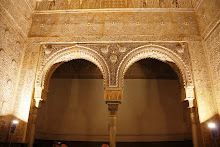
Alhambra, Granada

Alhambra, Granada

Alhambra, Granada

Alhambra, Granada

Alhambra, Granada

Alhambra, Granada

Alhambra, Granada

Granada

Granada

Granada

Granada

Granada

Granada

Granada

Granada

Granada

The Obsession continues

yes yes i know....

I knew I was in the right town with these doors

I just love these kind of light shots

Cute!

Sevilla

Sevilla

Sevilla

Sevilla

Sevilla

Sevilla

Sevilla

Sevilla

Main park

Madrid

Windows window windows

Street scene


Street scene

Sol station

Street scenes - gorgeous buildings

Bins, bins and more bins

Really going crazy with graffitti

Even my favourite store copped it!

Graffiti with anti-capitalism slogans were rife

Riot police ready for trouble

Overturned bins were everywhere and so was the mess!

Talk abotu neighbourhood watch

Above my fav. sth american store in Barca

In gothic quarter - i loved this

Down at the beach made by a rasta..

Barcelona

I just love this shop!!!

I just love this bridge - mum & i

The buildings are so beautiful!

School of St Jude, Arusha, Tanzania

School of St Jude, Arusha, Tanzania

School of St Jude, Arusha, Tanzania

School of St Jude, Arusha, Tanzania

School of St Jude, Arusha, Tanzania

School of St Jude, Arusha, Tanzania
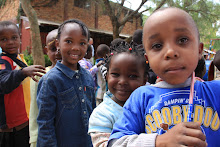
School of St Jude, Arusha, Tanzania

School of St Jude's, Arusha, Tanzania

School of St Jude, Arusha, Tanzania

School of St Jude, Arusha, Tanzania

School of St Jude testing day, Arusha, Tanzania

School of St Jude, Arusha, Tanzania

School of St Jude testing day - Arusha, Tanzania

School of St Jude, Arusha, Tanzania

School of St Jude, Arusha, Tanzania

School of St Jude - Arusha, Tanzania

School of St Jude, Arusha, Tanzania

Stonetown, Zanzibar

Matemwe, Zanzibar

Stonetown, Zanzibar

Stonetown, Zanzibar

Mnemba Atoll, Matemwe, Zazibar

Blue safari, Stonetown, Zanzibar

Blue Safari, Stonetown, Zanzibar

Stonetown, Zanzibar

Stonetown, Zanzibar

Stonetown, Zanzibar

Stonetown, Zanzibar

Prison Island, Zanzibar

Prison Island, Zanzibar

Stonetown, Zanzibar

Stonetown, Zanzibar

Stonetown, Zanzibar

Stonetown, Zanzibar

Stonetown, Zanzibar

Stonetown, Zanzibar

Stonetown, Zanzibar

Stonetown, Zanzibar
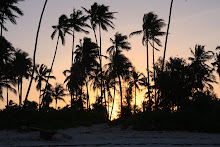
Matemwe beach, Zanzibar

Matemwe beach, Zanzibar

Matemwe beach, Zanzibar

Streets of beautiful doors - heaven!

Typically winding side street in Stonetown

It's tradition to give a Kanga to the woman of the house

A local friend watching my sponsor child visit
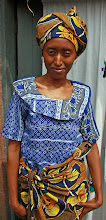
East African Mama
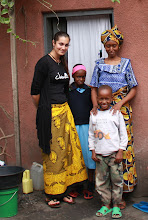
Outside the home

Hanging out with the crew

Cradle of Love

Cradle of Love

Cradle of Love

Cradle of Love

Cradle of Love

Cradle of Love
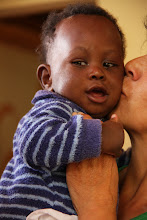
Cradle of Love

Cradle of Love

Cradle of Love

Cradle of Love

Cradle of Love

Blue Heron cafe, Arusha

Masai markets, Arusha, Tanzania




Masai Village, Arusha, Tanzania

Masai village in Arusha


I couldnt resist & wanted them all to come with me

Masai village, Arusha, Tanzania
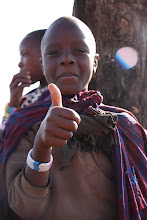
Now its thumbs up all round the village


St Judes Lake Manyara safari

Excited St Judes kids on Safari

Lone Wilderbeest in Lake Manyara

St Jude's Lake Manyara safari

St Jude's Lake Manyara Safari

St Jude's Lake Manyara safari

St Jude's Lake Manyara safari

St Jude's Lake Manyara safari

St Jude's Lake Manyara safari

St Jude's Lake Manyara safari

St Jude's Lake Manyara safari
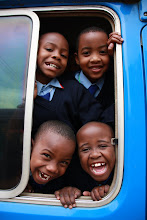
St Jude's, Arusha, Tanzania

St Jude's , Arusha, Tanzania

St Jude's, Arusha, Tanzania

St Jude's Moshono campus, Arusha, Tanzania

St Jude's, Arusha, Tanzania

St Jude's Usa, Arusha, Tanzania

St Jude's Usa campus, Arusha, Tanzania

St Jude's, Arusha, Tanzania

St Jude's, Arusha, Tanzania

St Jude's, Arusha, Tanzania

St Jude's - Arusha, Tanzania

St Jude's, Tanzania

Arusha, Tanzania

Arusha, Tanzania

Arusha, Tanzania

Rafina, Athens

Andros, Greece

Andros, Greece

Andros, Greece

Andros, Greece

Andros, Greece

Andros, Greece

Barcelona

Barcelona

Barcelona

Barcelona

Las Rambalas, Barcelona

Barcelona

Barcelona

Barcelona


Barcelona


Barcelona

Barcelona
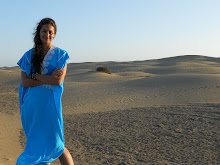
Gran Canaria

photo by Jorge

Gran Canaria



Gran Canaria

Gran Canaria

Gran Canaria
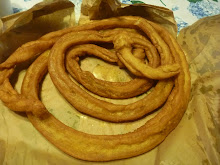
Yes I know what it look like


My birthday sunrise whilst waiting to board the hot air balloon

A shy donkey on the streets of Marrakesh

Our hot air balloon in the distance over a home in the Berber village

Freshly baked by the Berber women for our brunch

Outside the newly revamped hotel they filmed Sex in the City 2

The cute little turtle at the Riad in Marrakesh

UNESCO heritage site

Mudbrick houses built into the Atlas Mountain hillsides

Lunch time for our hungry camels

The wall around the Medina

boats.. boats.. and more boats!

My horse Atlas & I having a well deserved rest

Crab anyone?

The old wall along the ocean & the many fishing nets

scenery from the bus on the way to Eassouria

A common scene across the city

One of the many Berber doctors in the square

My special church in Zakynthos

View from the ferry leaving Zakynthos

A photo of my parents I found with an Aunt in Greece

Wakeboarding from a jetski

Isnt she a cutie!

View from where my grandparents are buried.

My cousins cute little boy

Photo by Leeann Murphy

Photo by Leeann Murphy
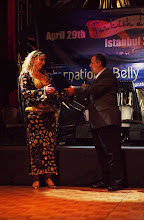
Photo by Leeann Murphy

Photo by Leeann Murphy
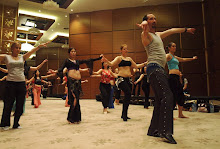
Photo by Leeann Murphy

Taking blessings from the Aarti flame

Sunsets with crowds waiting for Aarti

Flame holders feeling the heat at Aarti for Kumbah Mela 2010

Pilgrims taking in Holy dip for Kumbah Mela 2010

Baby crying as mum gets him a haircut for Kumbah Mela

Boy looking through glass into Ganges for valuables

Women in Rishikesh

Boy selling Aarti offerings

Kids at the Taj

Jaipur

View from Hawa Mahal

Theatre games

In 2010 Kat embarkes on a new chapter of her life - to follow the gypsy trail of dancers passing through India,Turkey, Egypt and Morrocco. Not only will she follow some of the Gypsy Trail, but along the way she will be visiting orphanages and schools across these countries teaching them world dance and hopefully learning from them too.
More archways

Alhambra, Granada
Seat anyone?

Alhambra, Granada
Oh just an archway

Alhambra, Granada
Amazing patterns

Alhambra, Granada
Mosaic patterns

Alhambra, Granada
View from more windows

Alhambra, Granada
View through a window

Alhambra, Granada
The rains at Alhambra

Granada
Michelle Obama's chair

Granada
ole ole

Granada
Flamenco Fire

Granada
Ole!

Granada
Flamenco passion

Granada
The cave

Granada
Flamenco dancer side stage

Granada
Bustling side streets

Granada
Windows

The Obsession continues
Another door

yes yes i know....
Door obsession

I knew I was in the right town with these doors
Light obsession

I just love these kind of light shots
Streets of Cordoba

Cute!
Mother Mary

Sevilla
Inside the main cathedral

Sevilla
He's got the whole world in his hands

Sevilla
Matador pic on fnac building

Sevilla
Giralda tower & cathedral by night

Sevilla
View from Giralda tower over cathedral

Sevilla
The horse obsession

Sevilla
The lampost obsession

Sevilla
Black swans in Madrid

Main park
Crystal Palace

Madrid
Madrid

Windows window windows
Madrid

Street scene
Madrid

Madrid

Street scene
Madrid

Sol station
Madrid

Street scenes - gorgeous buildings
Barcelona Riots

Bins, bins and more bins
Barcelona Riots: Desigual

Really going crazy with graffitti
Barcelona Riots: Mango

Even my favourite store copped it!
Barcelona Riots: Footlocker

Graffiti with anti-capitalism slogans were rife
Barcelona Riots - Placa Catalunya

Riot police ready for trouble
Las Ramblas -Barcelona Riots

Overturned bins were everywhere and so was the mess!
View from our balcony

Talk abotu neighbourhood watch
Barca street art 3

Above my fav. sth american store in Barca
Barca Street art 2

In gothic quarter - i loved this
Street art 1

Down at the beach made by a rasta..
My beach....

Barcelona
Festival dolls

I just love this shop!!!
Gothic Barca

I just love this bridge - mum & i
Barca facades

The buildings are so beautiful!
Exam time... deep in concentration

School of St Jude, Arusha, Tanzania
The front of the qeue and the reading tests happening

School of St Jude, Arusha, Tanzania
Peek-a-boo

School of St Jude, Arusha, Tanzania
Very neatly dressed for the big day

School of St Jude, Arusha, Tanzania
A quiet cutie

School of St Jude, Arusha, Tanzania
Standing quietly in life

School of St Jude, Arusha, Tanzania
Check out the hair-do's

School of St Jude, Arusha, Tanzania
Cheese...

School of St Jude's, Arusha, Tanzania
Lining up for their reading exam

School of St Jude, Arusha, Tanzania
Show me your pencils...

School of St Jude, Arusha, Tanzania
The gardeners organising the prep children and mama's looking on

School of St Jude testing day, Arusha, Tanzania
Sit quietly... shhhhh

School of St Jude, Arusha, Tanzania
Parents looking on & children walking in

School of St Jude testing day - Arusha, Tanzania
The wait inside continues

School of St Jude, Arusha, Tanzania
\proud mamas looking on

School of St Jude, Arusha, Tanzania
The lines kept going through the gates

School of St Jude - Arusha, Tanzania
Marching into the school gates

School of St Jude, Arusha, Tanzania
The writing was in the sand...

Stonetown, Zanzibar
Gorgeous paradise

Matemwe, Zanzibar
I found nemo! I was getting attacked by these guys

Stonetown, Zanzibar
Zanzibar sailor - I took loits of him :)

Stonetown, Zanzibar
Sushi anyone?

Mnemba Atoll, Matemwe, Zazibar
Busy body fish posed for the camera

Blue safari, Stonetown, Zanzibar
Under the sea...

Blue Safari, Stonetown, Zanzibar
I told you I took lots of him

Stonetown, Zanzibar
Night food markets at Fordhani Gardens

Stonetown, Zanzibar
Relaxing on the Blue Safari

Stonetown, Zanzibar
Dhows on the Blue safari

Stonetown, Zanzibar
Turtles from Seychelles

Prison Island, Zanzibar
Jetty welcome

Prison Island, Zanzibar
Fordhani Gardens - where the night food markets are held

Stonetown, Zanzibar
Fish fish come into my dish,....

Stonetown, Zanzibar
Outside central market

Stonetown, Zanzibar
Street scenes

Stonetown, Zanzibar
Views from Shanghani Hotel

Stonetown, Zanzibar
Dhow taxis

Stonetown, Zanzibar
Dhow boat in Stonetown

Stonetown, Zanzibar
The island of sunsets

Stonetown, Zanzibar
Sunsets

Matemwe beach, Zanzibar
Gorgeous shells throughout Zanzibar

Matemwe beach, Zanzibar
Seaweed drying

Matemwe beach, Zanzibar
Stonetown, Zanzibar

Streets of beautiful doors - heaven!
Stonetown, Zanzibar

Typically winding side street in Stonetown
School Kanga gift to Sponsor child mum

It's tradition to give a Kanga to the woman of the house
Neighbourhood cutie

A local friend watching my sponsor child visit
My sponsor child's Mum

East African Mama
My sponsor childs family & I

Outside the home
Kids in my sponsor childs neighbourhhood

Hanging out with the crew
Cuties!

Cradle of Love
One of the nurserys

Cradle of Love
Happiness - true to her name

Cradle of Love
One of the little boys

Cradle of Love
In deep thought whilst giving much needed cuddles

Cradle of Love
Lunches all round..

Cradle of Love
I call this guy the chief

Cradle of Love
Babies everywhere

Cradle of Love
Cuddles all round!

Cradle of Love
Lunchtime

Cradle of Love
Happiness curious about my necklace

Cradle of Love
After a hard day - relax time

Blue Heron cafe, Arusha
Kanga seller @ Munduli markets

Masai markets, Arusha, Tanzania
Scene at the markets

Local masai kids outside the village

Donkeys at the markets

Happy child with biscuit infront of his home

Masai Village, Arusha, Tanzania
Biscuits are a favourite with the kids in the village

Masai village in Arusha

The kids & I

I couldnt resist & wanted them all to come with me
Another cutie in the village

Masai village, Arusha, Tanzania
I did the thumbs up to see if they like the biscuits

Now its thumbs up all round the village
more thumbs up!

Excited students on our way to safari

St Judes Lake Manyara safari
At the main gate to Lake Manyara

Excited St Judes kids on Safari
Our first animal in the park for the day...

Lone Wilderbeest in Lake Manyara
Our first Impala for the day

St Jude's Lake Manyara safari
Getting into the Hot Springs

St Jude's Lake Manyara Safari
One of our guys at the hot springs with a old scull

St Jude's Lake Manyara safari
Me & some of the kids

St Jude's Lake Manyara safari
One of the many giraffe's we saw

St Jude's Lake Manyara safari
Lunchtime - students line up for pilau!

St Jude's Lake Manyara safari
Students & teacher group shot

St Jude's Lake Manyara safari
Elephants!!! One of the cuties...

St Jude's Lake Manyara safari
Out of the bus window...
St Jude's, Arusha, Tanzania
On our way home...

St Jude's , Arusha, Tanzania
Playtime

St Jude's, Arusha, Tanzania
View from my room

St Jude's Moshono campus, Arusha, Tanzania
Learning is fun!

St Jude's, Arusha, Tanzania
Lunchtime...

St Jude's Usa, Arusha, Tanzania
Getting ready for the lunch rush - our dining hall

St Jude's Usa campus, Arusha, Tanzania
Teacher & students

St Jude's, Arusha, Tanzania
One of the many assembly performances

St Jude's, Arusha, Tanzania
Assembly shots

St Jude's, Arusha, Tanzania
Usa assembly - lots of kids

St Jude's - Arusha, Tanzania
Usa assembly

St Jude's, Tanzania
Common roadside scene

Arusha, Tanzania
Another use for your bike..

Arusha, Tanzania
Shanty village

Arusha, Tanzania
Sunrise

Rafina, Athens
Andros Port

Andros, Greece
Dreamy days on the sea

Andros, Greece
Watching the World Cup outside

Andros, Greece
One of the many beautiful bays

Andros, Greece
Mr Kolokithi chilling with us..

Andros, Greece
Racket ball in the islands

Andros, Greece
Jesus - La Sagrada Familia

Barcelona
Lighting a candle in St Anna

Barcelona
Candles in St Anna

Barcelona
Side streets of Gotic Quarter

Barcelona
Male Flamenco Busker

Las Rambalas, Barcelona
St Anna in Gotic Quarter

Barcelona
Water fountain

Barcelona
Old Cemetary with amazing statues

Barcelona
Beach outside Barcelona

La Sagrada Familia

Barcelona
View of Barcelona from La Sagrada

Puppet festival

Barcelona
Puppet festival in Gotic Quarter

Barcelona
Sand dunes

Gran Canaria
Little fishy where we snorkelled

photo by Jorge
This must be heaven

Gran Canaria
Lobster in the paella

Little lobster before Paella

Mother Mary in tiles on a house

Gran Canaria
Where we did our first diving lesson

Gran Canaria
Beautiful waters and mountains

Gran Canaria
Churroz for breakfast

Yes I know what it look like
Beachside town in Gran Canaria

Marrakesh sunrise

My birthday sunrise whilst waiting to board the hot air balloon
Donkey

A shy donkey on the streets of Marrakesh
Balloons & Berbers

Our hot air balloon in the distance over a home in the Berber village
Berber breakfast

Freshly baked by the Berber women for our brunch
La Mamounia

Outside the newly revamped hotel they filmed Sex in the City 2
Little turtle...

The cute little turtle at the Riad in Marrakesh
Ait ben Haddou

UNESCO heritage site
Atlas Mountains

Mudbrick houses built into the Atlas Mountain hillsides
Camels

Lunch time for our hungry camels
Eassouria Medina

The wall around the Medina
Eassouria fishing scene

boats.. boats.. and more boats!
Horse riding in Eassouria

My horse Atlas & I having a well deserved rest
Eassouria gigantor animals...

Crab anyone?
Eassouria

The old wall along the ocean & the many fishing nets
On the road to Essaouria

scenery from the bus on the way to Eassouria
Satellites dishes of Marrakech

A common scene across the city
Berber Doctor

One of the many Berber doctors in the square
St Dionyssios

My special church in Zakynthos
Zakynthos port

View from the ferry leaving Zakynthos
Digging up the family tree

A photo of my parents I found with an Aunt in Greece
Waking boarding in Athens

Wakeboarding from a jetski
Family

Isnt she a cutie!
View over Alykes, Zakynthos

View from where my grandparents are buried.
Family

My cousins cute little boy
Rita from Kazaksthan

Photo by Leeann Murphy
Serkan performing

Photo by Leeann Murphy
Yousry Sharif presenting award to Simona

Photo by Leeann Murphy
Naime doing Cabaret Roman

Photo by Leeann Murphy
Serkan Tutur workshop

Photo by Leeann Murphy
Father and son

Taking blessings from the Aarti flame
Waiting for tonite...

Sunsets with crowds waiting for Aarti
Feeling Hot Hot Hot

Flame holders feeling the heat at Aarti for Kumbah Mela 2010
Dip Dip time

Pilgrims taking in Holy dip for Kumbah Mela 2010
Not Happy Jan

Baby crying as mum gets him a haircut for Kumbah Mela
Pirates of the Ganges

Boy looking through glass into Ganges for valuables
aarti women

Women in Rishikesh
aarti boy

Boy selling Aarti offerings
Taj Mahal

Kids at the Taj
Slum school

Jaipur
Jaipur: Pink City

View from Hawa Mahal
School kids

Theatre games

Blog Archive
-
▼
2010
(48)
- ► 12/19 - 12/26 (3)
- ► 12/12 - 12/19 (3)
- ► 11/14 - 11/21 (1)
- ► 09/12 - 09/19 (1)
- ► 09/05 - 09/12 (1)
- ► 08/29 - 09/05 (1)
- ▼ 08/08 - 08/15 (2)
- ► 07/25 - 08/01 (2)
- ► 07/18 - 07/25 (1)
- ► 07/11 - 07/18 (4)
- ► 06/27 - 07/04 (1)
- ► 06/20 - 06/27 (2)
- ► 06/06 - 06/13 (5)
- ► 05/09 - 05/16 (3)
- ► 05/02 - 05/09 (1)
- ► 04/18 - 04/25 (1)
- ► 04/11 - 04/18 (3)
- ► 03/14 - 03/21 (3)
- ► 03/07 - 03/14 (1)
- ► 02/28 - 03/07 (1)
- ► 02/21 - 02/28 (2)
- ► 02/14 - 02/21 (1)
- ► 02/07 - 02/14 (3)
- ► 01/31 - 02/07 (2)
Links to places visited:
- Bali Volunteer House
- Barcelona Rooms Hostel, Spain
- Blue Safari trips in Zanzibar, Tanzania
- Bollywood classes in Gran Canaria, Canary Islands
- Cooking School in Istanbul
- Cradle of Love Orphanage, Arusha, Tanzania
- David Sheldrick Wildlife Trust, Nairobi, Kenya
- Eco Culture Tours in Zanzibar, Tanzania
- Hospedaje Romero Hostel, Madrid
- Hostel One Sevilla, Seville, Spain
- Hotel Las Nieves, Granada, Spain
- Kendwa Rocks Hotel, Zanzibar, Tanzania
- One Ocean PADI Dive Cnt, Zanzibar, Tanzania
- Seeds of Hope Children of Bali
- Shangani Hotel, Stonetown, Zanzibar, Tanzania
- The School of St Jude, Arusha, Tanzania
- Turkish bellydance teacher in Istanbul
Reading material for the trip....
- Queen of Dreams by Chitra Divakaruni
- Indian Summer by Will Randall 2004
- Eyewitness Travel Guides - India
- Lonely Planet - India
- Lonely Planet - South East Asia on a shoestring
- Queen of Dreams by Chitra Divakaruni


